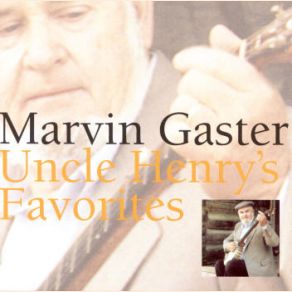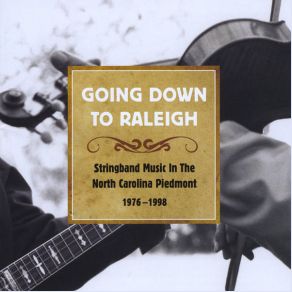Marvin Gaster
Wikimp3 information about the music of Marvin Gaster. On our website we have 1 albums and 2 collections of artist Marvin Gaster. You can find useful information and download songs of this artist. We also know that Marvin Gaster represents Songwriter/Lyricist genres.
Biography
[Edit]North Carolina's Marvin Gaster is a rare individual who has been part of two vastly different scenes in the ongoing drama of Appalachian music. He plowed behind a mule, and played music as entertainment at parties or other social events that allowed the hard working folk to unwind. He also studied for a history degree at UNC-Chapel Hill in the '70s, when there was more old-time music being played on that campus than anywhere back in the hills. And in his middle ages he has taken part in such modern day cultural phenomena as folk festivals and recording sessions in pristine studios. He is a living bit of banjo history, "the last in a line of Lee County two finger banjo pickers" to quote no less a banjo expert than Winston-Salem's Bob Carlin. Carlin is best known as a sidekick to the late John Hartford, but lovingly produced a superb CD of Gaster's music that was released on Rounder in 1995. Gaster was not the first musician in his family. For all anyone knows the lineage of musicians might go back even further, but there was definitely Fiddlin' John Morris Francis Gaster, who died in 1942. But this was not a family that cherished and loved old-time music as a unified entity. In reality, John's father Big John Gaster detested music. He hated music so much that the fiddlin' son had to sneak up to the roof of one of the farm buildings to his sounds out of earshot. Marvin's father played guitar, but his main musical influence growing up became his Uncle Henry when his parents took off looking for work elsewhere, leaving the boy in the care of the childless relatives. During his time living with them, Gaster recalls that musical events were integrated into the scheme of work that needed to be done. Dances that were known as "frolics" were scheduled to take place alongside jobs such as corn shuckings or land clearings. Participants would literally dance all night, then head off to the fields when the sun came up. From these events Gaster remembers a fiddler named John Williams who used to pack his instrument inside a flour sack. Speaking of casual instrument cases, Gaster also recalls that when he finally got the 36 dollars together that he needed to buy his first banjo, the storeowner put it in a bag from the dry cleaners. As soon as he got this instrument home, he noticed a change in his Uncle Henry. He hadn't realized that his uncle played the banjo. It turned out that Henry Perry had been a professional musician up until the '20s, alongside his brother Lacy Perry and cousin Everton Spivey, fiddlers the both of them. Perry's style of banjo playing had been learned from local musicians such as Abner Crutchfield and Bascom Caviness, the latter man a Civil War veteran. The uncle delighted in having the new interest in common with his nephew. Switching back and forth between banjo and fiddle and with some other local musicians putting in their two cents, Gaster learned both banjo and fiddle while the traditional ways of life began to change radically all around him. New things kept coming along, such as electricity. And some things seemed to be gone for good, like the frolics, replaced by dances held at public halls in town. The music itself was changing as players put on fingerpicks in order to be heard in the larger, noisier venues, and none of them were playing in the style of Uncle Henry anymore. A fiddler named W. Earl Wicker became Gaster's guide into a new level of professionalism. Wicker and Gaster began winning fiddle and banjo contests and played many weekend music events, many of them fundraisers. By the '40s he was playing on two Sanford radio stations. He started trying to modernize his style at this time, but quickly dropped the use of the third finger, going back to the old ways. Still in high school, he was playing with musicians such as Alton Williams, making about 12 dollars a gig. He pretty much sat out the '50s musically, as in between raising a new family and the changing times there didn't seem to be either interest or time for playing. In the late '60s he got back into it again, full steam ahead, with fiddler Lauchlin Shaw and guitarist and harmonica player Wade Yates. Gigs tended to be weekend dances in the Chapel Hill area. This was a good locale at the next decade began to unfold, because it turned out a resurgence in interest in old-time music was about to take place. Several different homes in the community were focal points for regular musical sessions, out of which a variety of old-time music bands were formed. Shaw's home was one of these hot spots, and this is where Gaster first came in contact with one of his regular collaborators, fiddler Norm Boggs. The '80s were a good decade for Gaster's musical activities. With his children leaving home and his time his own, he became completely devoted to the fiddle and showed up at all the fiddler's gatherings, music festivals, contests, and jam sessions that would have him. When he retired from his job as a schoolteacher in 1993, he had even more hours to devote to music. It must have started looking like fun to his brother Harry Gaster, who learned bass and began to travel along providing backup. In the mid-'90s Gaster was presented the opportunity to record a full CD of his music for Rounder, an occasion to bring together many of his friends such as Boggs, Yates, and brother Harry. This disc, dedicated to and named after Uncle Henry, was greeted with rave reviews. Gaster continues to be a regular participant at southern fiddler's conventions, playing most often with fiddler J.P. Fraley or banjoist Will Keys, who plays in a similar style to Gaster. He is particularly fond of playing with younger musicians, passing the old music along to another generation.
Collections
Title: Art Of Old - Time Mountain Music
Genre: Pop


